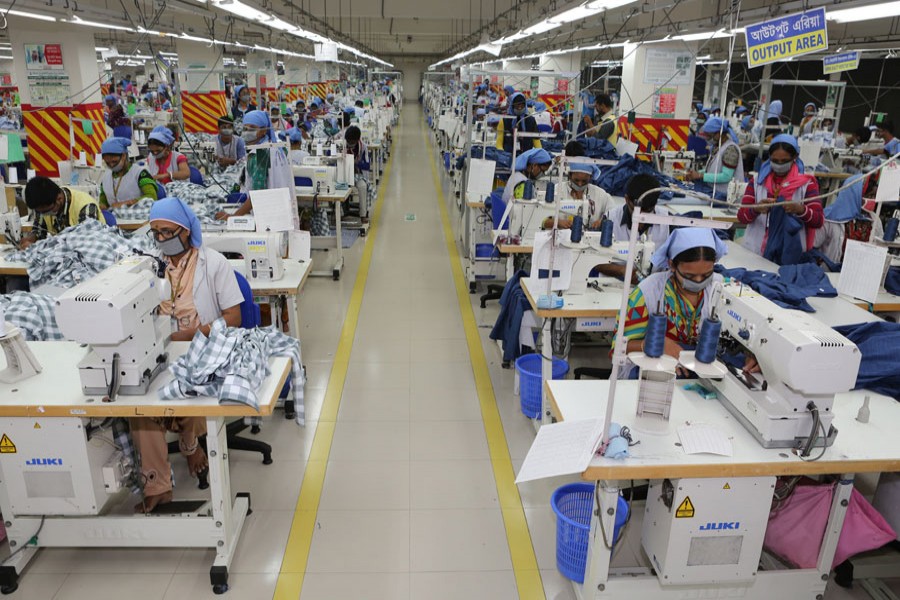International Labour Organization (ILO) has expressed concern over Bangladesh's steps in addressing its recommendations especially related to freedom of association in and outside EPZ factories and bringing EPZ units within labour inspectorate and high rejection rate of trade union registration applications.
It also expressed concern over some of the provisions of draft amendments to the labour law and EPZ law.
The recent ILO observations were made at the Report of the Committee of Experts on the Application of Conventions and Recommendations after the government sent its reports on steps to address the ILO recommendations within the deadline of August last year.
The committee observed that a very large number of provisions of the draft EPZ labour act would need to be repealed or substantially amended to ensure compliance with the Convention.
Recalling the conclusions of the previous Conference Committee, the committee has requested the government to continue to review the draft EPZ labour act, in consultation with social partners, to address all the issues and to bring the EPZs within the purview of the Ministry of Labour and the Labour Inspectorate.
Welcoming the government's indication to a provision that is proposed to allow the formation of higher-level organizations within a zone will be incorporated in the redrafted EPZ labour act, the committee, however, renewed its call for ensuring full conformity with the Convention to enable associations to affiliate beyond the zones and engage with actors outside their zones and enterprises.
Therefore, the committee encouraged the government to add this to the list of proposed amendments of the draft EPZ labour act currently restricts WWA activities to the territorial limits of the enterprise thus banning any engagement with actors outside the enterprises, including for training or communication, and section 102(4) prohibits association or affiliation with another WWA in the same zone, another zone or beyond the zone and thus to form higher-level organizations.
The government has proposed 30 per cent, 27 per cent, 24 per cent and 20 per cent minimum membership requirements in forming trade unions for factories having workers less than 2000, 2001 to 5000, 5001 to 7500 and more than 7500 in the draft amendment to labour law.
"The committee regrets that the proposed amendments do not respond to its longstanding concerns and notes with concern that the minor reduction in the minimum membership requirements proposed by the government is not likely to have an impact on a large number of enterprises and thus would not, in any meaningful manner, contribute to the free establishment of workers' organizations," the report also available at ILO official website reads.
Mentioning that the number of rejected applications for registration remains high, and that a substantial proportion of rejections come without explanation, the committee requested the government to continue to take all necessary measures to ensure that registration is a simple, objective and transparent process, which does not restrict the rights of workers to establish organizations without previous authorization.
The committee also requested the government to continue to provide updated statistics as to the overall number of applications for registration (whether online or otherwise) received, accepted and/or rejected, the reasons given for all rejections, and to clarify the status of the 509 applications submitted through the online system, which were not granted.
The committee suggested the government continue to take necessary measures to review related provisions of the BLA without delay, in consultation with social partners, with a view to truly reducing the minimum membership requirement.
It also sought information on the approximate number of enterprises falling within each of the mentioned enterprise categories for the purpose of establishing adequate minimum membership requirement and to indicate the sectors in which they operate.
The committee suggested providing updates on the functioning of the helpline, including the number and nature of allegations raised, the nature of the follow-up to calls, including steps taken to prevent reprisals against helpline users and preserve their anonymity, the number and nature of investigations undertaken and their outcomes.
It also requested the government to clarify the status of the 1,567 complaints which have not been settled.
It sought detailed information about allegations of violence and intimidation suggesting measures to prevent such incidents in the future and ensure that, if they occur, they are properly investigated.


